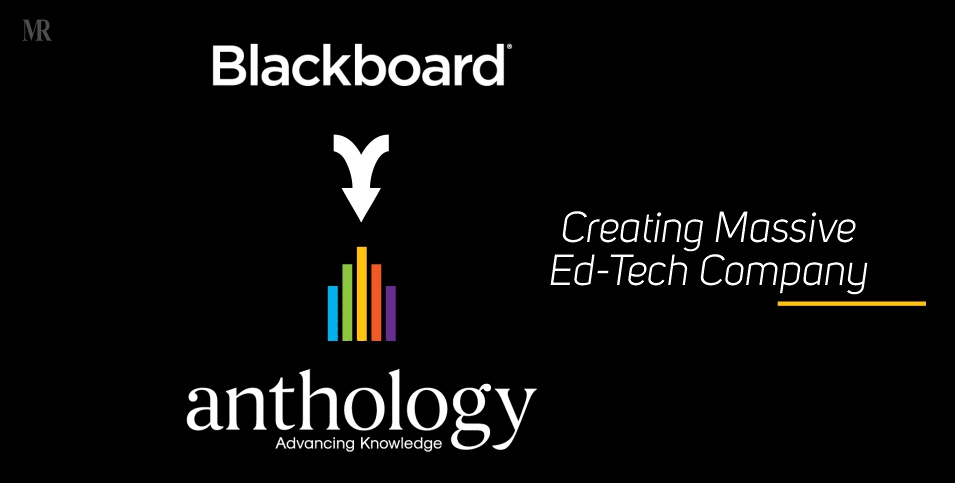Key Highlights:
- Blackboard and Anthology announced a definitive agreement to combine the two companies.
- The merged organization is expected to be among the largest educational technology corporations in the field.
- The merged company’s power would stem from its capacity to bring data from throughout the student life cycle to bear on student and institutional performance.
The largest educational technology corporation
Anthology, which was formed a year ago by the merger of three higher education administration software firms, said today that it will combine with Blackboard, which has long been the most recognizable company in learning technology.
The businesses did not reveal any financial information, but the merged organization is expected to be among the largest educational technology corporations in the field. Providence Equity Partners purchased Blackboard in 2011 for $1.64 billion, and the company was marketed (but not sold) in 2015 for around $3 billion.
“Our combined footprint, from both a product perspective and from the more than 4,000 colleges and universities we serve worldwide, likely makes this the largest education technology company selling into higher education,” Jim Milton, Anthology’s chairman and chief executive officer, said in an interview this morning. Milton will lead the combined company, whose name has not yet been decided.
The story of Anthology nad Blackboard
Anthology was formed in 1988 by the merger of Campus Management, a provider of administrative systems such as student information, finance, and human resources software, Campus Labs, a firm focused on assessment, learning, and student success technology, and iModules, a community engagement software company. Last year, ListEdTech ranked Anthology as the third-largest higher education administration technology business, after only Microsoft and Ellucian.
For many years, Blackboard was the leading supplier of learning management systems, but competitors like Instructure (manufacturer of Canvas) and D2L have gained momentum and, in the case of the former, overtook it.
In 2019, Blackboard divested its Transact division, one of the firms it acquired as it tried to diversify beyond just a learning management company. As a result of the company’s considerable debt, there was increased speculation that it might be split up or sold.
Breaking down data silos
The merged company’s power, according to Milton and Bill Ballhaus, Blackboard’s chairman, CEO, and president would stem from its capacity to bring data from throughout the student life cycle to bear on student and institutional performance. “We’re on the verge of breaking down the data silos” that exist between administrative and academic departments on campuses, according to Ballhaus.
A reporter questioned Ballhaus if Blackboard will cease to exist as a firm and brand. While the firm is well-known, it also carries substantial baggage from years of being a focus of faculty complaints about its goods and rival targeting.
Also Read: Quantum Dots can communicate with each other















